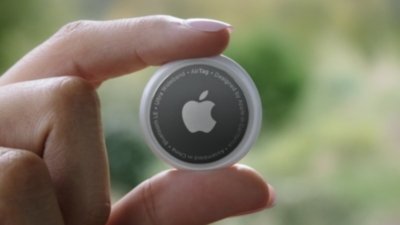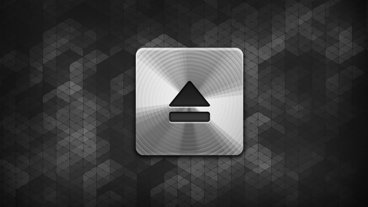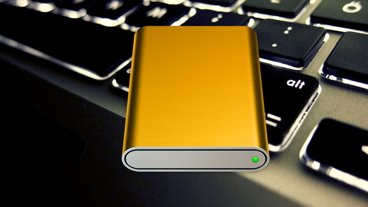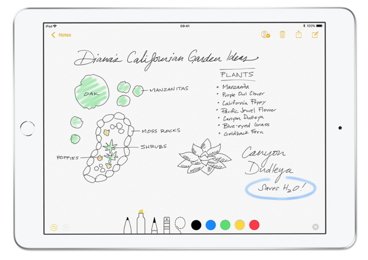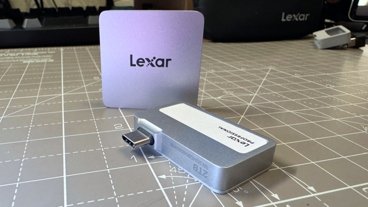Digital tabletop role-playing game services have flourished lately, as people search for new ways to play especially during a pandemic. Here's how to get started playing classics like Dungeons and Dragons and other similar games, over the Internet.
My odyssey into tabletop roleplaying games began when I was 10-years old, playing my first session of Advanced Dungeons & Dragons on the steps of my elementary school with a group of older kids. When my dwarven fighter landed that first critical hit, I was hooked for life.
Tabletop RPGs (TTRPGs) fueled my imagination. They became the backbone of my career as an illustrator, cartographer, and game designer. Read the ten years of archives over on my d20Monkey series and you'll see a clear look into my life with RPGs.
These games are all about sitting around a table with friends new and old, rolling dice, playing with miniatures and terrain, forging epic tales, and creating memories together. Everything, from building worlds to painting miniatures, is all a huge part of my day-to-day life.
However, like many gaming groups across the world, the ongoing global pandemic, and lockdowns from 2020 into 2021 changed the way we all look at our tabletop experiences. Quitting was never on the cards, as the games and experiences mean too much to just walk away — and they're a good way to get friends together. But, as a nearly exclusive in-person gamer, the waters of online TTRPGs were uncharted territory.
The short version is this — You have many, many options for playing games online. For this primer, I will be focusing on Roll20, D&D Beyond, and Discord, with an examination at other platforms in the coming months.
Be aware that not all options are created equally, and some of the examples provided may not cover your specific needs. The TTRPG market contains an amazing tapestry of games, worlds, and accessories for RPG experiences.
However, Dungeons & Dragons remains the most widely played game on the market, and many online tools cater specifically (and exclusively) to the D&D experience.
Understanding that will help you narrow down or remove some of the options out there, and I will make a point to mention versatility and limitations where applicable.
Hardware and Specifications
I currently use a 2018 Mac Mini with a 3.2 GHz 6-Core Intel Core i7, 32 GB of DDR4 RAM, and a Radeon RX Vega 64 via eGPU. The Mac Mini I use is sufficiently beefy and does everything I need for my day job, but you do not need a high-end gaming PC bedecked in RGB lights and an array of fans to enjoy the options presented.
Any average PC or mid-level and higher tablet with a high-speed internet provider will deliver a fun player experience. For the GMs (Game Masters) out there, I recommend bringing as much power to the table as possible, since you will be handling more files and possibly setting up maps, tokens, and other elements.
Roll20
Arguably the most widely known and used option for online TTRPGs, Roll20 is a browser-based set of tools for GMs and players that offers a wide variety of native game systems and options. Dungeons & Dragons, Pathfinder, 13th Age, Mutants and Masterminds, and Vampire: The Masquerade just to name a few of the options on offer.
The chances are very good that the game system you are currently running is offered within the Roll20 toolset even some of the rarer and older ones. With the flexibility of the native tools, creating campaigns for obscure and homebrew systems exist as viable options as well.
The first step is creating an account on the Roll20 page and then creating a brand-new campaign page. Creating the account, the new campaign page, and inviting players with a free Roll20 account is quick and simple.
From there, the front page of your campaign presents options to add or remove players, promote players to co-GM status, schedule sessions, and post campaign-specific blogs and discussions among the players. In essence, you are creating a little world all to yourselves for play and discussion.
If you use Discord for online play, you may opt to forego the scheduling and blog features here, but it is nice to have the option. You will work out what works best for your group.
Roll20 campaigns can be set up as public or private with the Roll20 community. For groups looking to add a few new players, campaigns can be set up by GMs to welcome new players via a posting board option in the community that feels like the old school bulletin boards in the open play areas of local game stores.
You have the option to chat, screen, and set up sessions to take new players out for a test drive to ensure everyone gets along. That's a topic that could fill volumes.
Launching the campaign page brings players and GMs to the actual play user interface, with a large page for maps or artwork, a space for chat and roll dialogue, and a small toolbar with all the various selectors for moving tokens, rulers for distance measurement (based on the adjustable native grids on the pages), dice rollers, mark up tools, and initiative trackers needed for sessions.
GMs will see additional options, as the main pages are layered for map placement, token placement, and optional dynamic lighting effects. With these tools, GMs can set up multiple pages as scenes, moving players from one to the other with a "player" banner, while keeping others hidden until big reveals and calls to roll initiative are made.
Start simple. Add some of Roll20's features as you go.
Roll20 has made strides in the past few years to improve the presentation and versatility of their dynamic lighting system for maps. Dynamic lighting is optional, allowing GMs to use tools for static light sources, light sources on player tokens, darkvision, low-light vision, and Fog of War effects to increase the immersion of dark, dangerous places.
I will say this: When dynamic lighting is set up and adjusted, which takes a bit of extra time, it just works. It is a nice feature and I often use elements from the toolset in my own games. That said, be prepared to spend a bit of time dialing everything in.
Character creation in Roll20 for Dungeons & Dragons takes several forms. In its native state, players and GMs create a blank character sheet that is assigned to a player.
From there, players can manually fill in the sheet with drag-and-drop available options from the campaign compendium or write class features in manually. The compendium is an amazing tool for GMs and players.
At the free account level of Roll20, 5th edition Dungeons & Dragons campaigns have access to the Basic Rules which are also available for free as a PDF. The basic rules are a very streamlined, free edition of the game that introduces new players to the game, and offer a small sample of the game with minimum options, but it works well to get games off the ground. If you played Dungeons and Dragons in the early eighties, the basic ruleset in that red box back in the day has less in it than the free PDF has today.
If you are looking for more options that are drag-and-drop friendly, you will need to purchase and share sourcebooks like the Player's Handbook from the Roll20 Marketplace or type everything in manually.
D&D Beyond
Another option is the use of D&D Beyond, a browser-based resource that allows players and GMs to create characters, homebrew items, monsters, and encounters for Dungeons & Dragons. With an interface that makes rolling up new characters and understanding the rules of the game so much easier than past editions, sheets that handle the math for players, and incredible options for using and tracking character abilities, I cannot recommend D&D Beyond enough.
I use D&D Beyond for my campaigns along with Beyond 20, an extension for Firefox and Chrome. Beyond 20 integrates the D&D Beyond character sheets with Roll20, allowing players to make virtual dice rolls on their open D&D Beyond character sheets that link and appear in real time with their open Roll20 campaigns.
The extension allows everyone to link their abilities, dice rolls, and art from D&D Beyond into the Roll20 chat dialogue for incredibly easy reference and rules clarifications. The optional settings allow public and hidden dice rolls, rolls with Advantage or Disadvantage, player conditions, death-saving throws, and custom macros for powers and effects.
For GMs, these features also apply to all the NPCs and monsters (both official and homebrew) from D&D Beyond, allowing us to have multiple tabs open and ready for point and click, instead of stacks of paper. All the monsters' abilities are right there, listed with to-hit rolls, saving throws, powers, and so on, making it incredibly valuable for time and peace of mind.
D&D Beyond is official Wizards of the Coast content and follows the account tier models based on your needs and use, which at the Master Tier also included content sharing (like Roll20) for players in campaigns.
Does this mean you need to purchase sourcebooks multiple times across various platforms? No, it doesn't, but it does mean that you will need to assess what works best for you and your group.
In my campaigns, I use Roll20 for the main interface for maps, tokens, and chat, with D&D Beyond and Beyond 20 open in additional tabs to make dice rolls, link abilities, etc. It requires a bit more CPU power to run both sites, of course, but the time and energy saved on the player and GM side of sessions are completely worth it.
As the GM for my sessions, I pay for a yearly Roll20 Plus account and a Master Tier on D&D Beyond because I needed access to multiple campaign tools and upload increases, so that works for me. The money I now save on terrain and in-person map printing for sessions means it all evens out in the long run, but that is my situation and may not apply to everyone.
When I buy a new sourcebook, I purchase through D&D Beyond now to take advantage of the compendium sharing across my campaigns.
In addition to the tools and pages available to GMs, Roll20 also provides customizable libraries for player handouts, NPCs, and token libraries that allow GMs to create and retain assets across multiple sessions and campaigns. Everything created or purchased for campaigns through the Roll20 Marketplace is shared across every campaign the GM creates. This flexibility is an invaluable resource.
Speaking as someone who currently GMs multiple campaigns on Roll20, it is very nice to have an all-in-one archive for maps and tokens to pull from at a moment's notice when the players go left and not toward the right as I expected.
The Roll20 Marketplace is deep. Very deep. With launch day sourcebooks for most major systems, adventures, art packs, token packs, and map packs all tailored for Roll20 use, GMs have a near-infinite resource for adding elements to their campaigns.
The pricing on these products can vary from publisher-to-publisher, but many of the map and token packs are incredibly affordable, especially if you are not artistically inclined or have access to art assets for your sessions. The sourcebooks from publishers like Wizards of the Coast can still be pricey in the Roll20 format, but compendium sharing takes some of that edge off with the material shared across players in the campaign.
Roll20 offers free accounts to players and GMs, with monthly subscription plans available that offer a wider scope for multiple campaigns with larger uploads, ad-free load screens, custom character sheets, and expanded compendium sharing.
My suggestion is to try the free tiers of Roll20 and D&D Beyond as-is when you begin. Run a one-shot session and test the interface, to see what works for you. If you want to expand your sourcebooks and compendium, decide as a group which path to take (Roll20 or D&D Beyond) and work together to have a consistent and expanding library over time.
Like any platform, it isn't all sunshine and rainbows. Roll20 has its own blemishes that infuriate many GMs. Here are a few of my issues with Roll20 in its current form.
The lack of tutorials and clear UI directions on the GM side of the platform are maddening. Setting up new encounter pages, aligning map art to the page grids, linking tokens to the intended monster or player characters, and using the dynamic lighting features can be very confusing at first.
Once you learn how, it is simple, but it takes doing a few times to learn it properly. There is an online community to help answer those questions, but I feel like these tutorials should come from Roll20.
The lag on large encounter pages with maps and over 6 tokens is noticeable at times. Being in the heat of the moment, attempting to lower a monster's hit points or drop in a spell effect template can slow everything down.
I am not a network person, but with the rise in online TTRPG gaming, and the growth of Roll20, I would assume added resources would be put forth to meet higher prime time traffic.
Discord
I use Discord for all of my online TTRPGs and I know a few people who have opted to use Discord as their sole resource for gathering to play online TTRPGs.
Just in case you do not know, Discord is a VoIP, instant messaging, and digital distribution service that allows users to chat over text, voice, and video calls with the options to upload media and files as part of self-contained communities a.k.a. servers.
Right from the start, I want to say that if you are not using Discord for gaming, keeping up with friend groups, or collaborative work projects, you probably should be. The entire platform (in my opinion) puts options like Zoom, Skype, and others to shame.
Discord's options are extensive and offers the perfect platform for building online communities or hubs for player groups to come together and play games.
The option for using Discord for online campaigns is straightforward. By creating a free server and inviting their players to join, GMs can use the various chat, voice, and video options to create play areas within the server for their campaign, and the integration of various bots and apps compatible with Discord enhances the experience with dice rollers, polls, and so on.
For example, I use the bot called Avrae on my server that allows players to link and update their characters from D&D Beyond to the server to make dice rolls, skill checks, saving throws, etc. during moments of text-based RP between sessions.
This same bot can handle all the dice rolls for a campaign played exclusively on Discord.
Uploading images of maps, monsters, NPCs, and handouts in conjunction with a bit of Theatre of the Mind gameplay allows groups to handle combat encounters quickly and smoothly (and enables GMs to pin important posts for quick reference later). Just as Roll20 offers a place to create a self-contained space for campaigns and player interaction, Discord offers the same, but with a much cleaner and more expansive approach.
Final Thoughts
Wading into the waters of online TTRPGs can feel a little bit daunting at first, especially if you are the GM. You already have plates to spin with session prep, scheduling, occasional player drama, scheduling, work, home life, scheduling, and working out exactly when to drop in the Deck of Many Things.
Remember these points:
- Set up accounts on Roll20 and D&D Beyond.
- Run practice encounters.
- Talk with your group about what works and what doesn't work.
- Decide if native Roll20 or Roll20/D&D Beyond/Beyond 20 works for you.
- Build compendium purchases (if any) based on that decision and share resources.
- Do not be afraid to eschew platforms like Roll20 for Discord-only gaming.
Adding the learning curve of online gaming can feel like a lot, but I promise you that once you get into it and set up a few maps and run a few encounters on Roll20, it will all click.
Roll20 may not be the best when it comes to explaining their own features, but there is a robust community of GMs who know how to explain things and video tutorials are everywhere. Do not allow the initial frustrations to turn you away from gaming online.
You can do it, and tools like Roll20, D&D Beyond, and Discord make it all easier than it has ever been before.
 Brian Patterson
Brian Patterson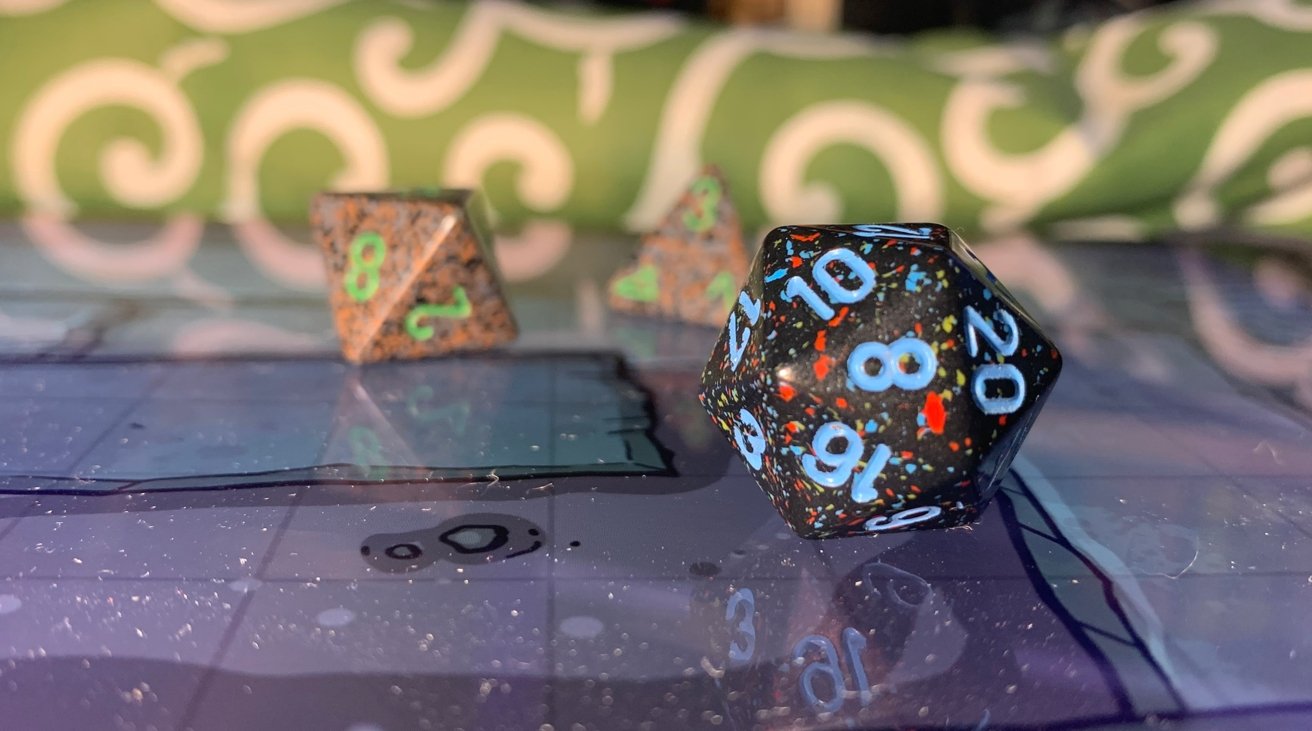
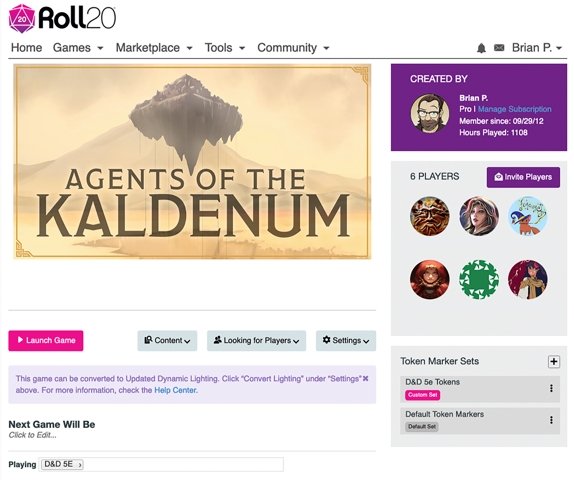
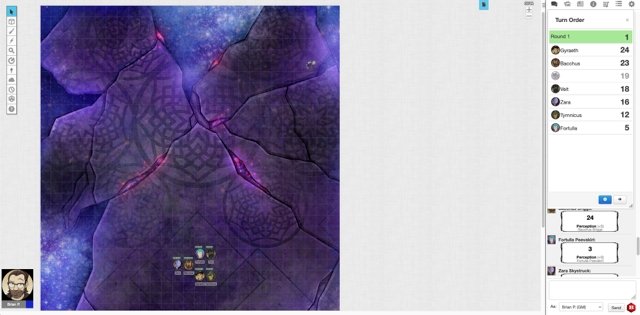

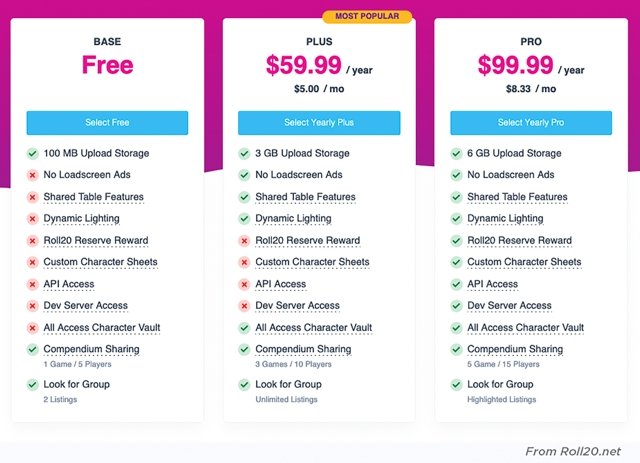
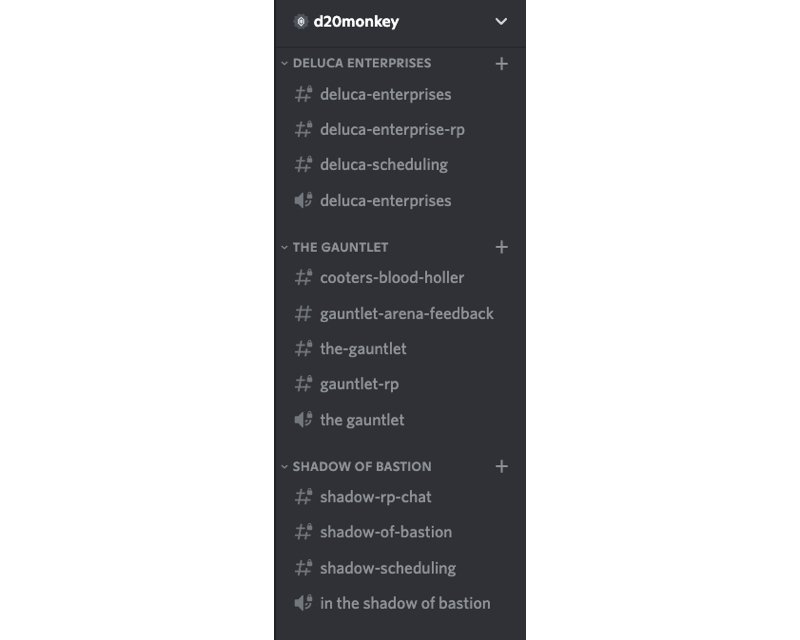
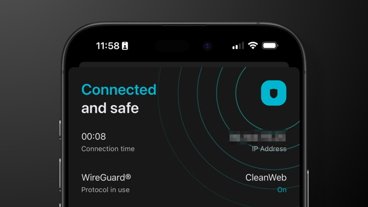

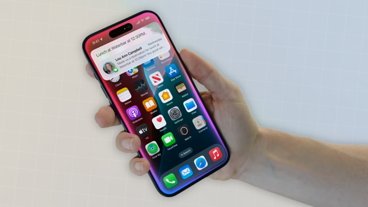



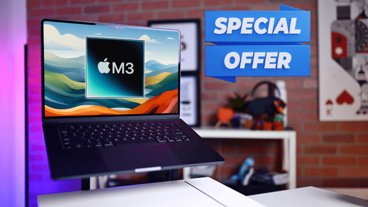

 Malcolm Owen
Malcolm Owen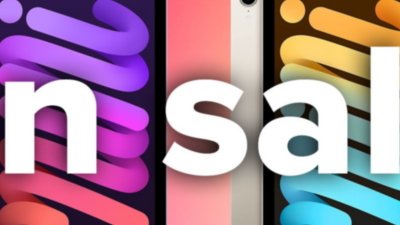
 Christine McKee
Christine McKee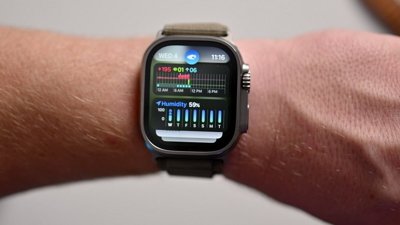


 William Gallagher
William Gallagher
